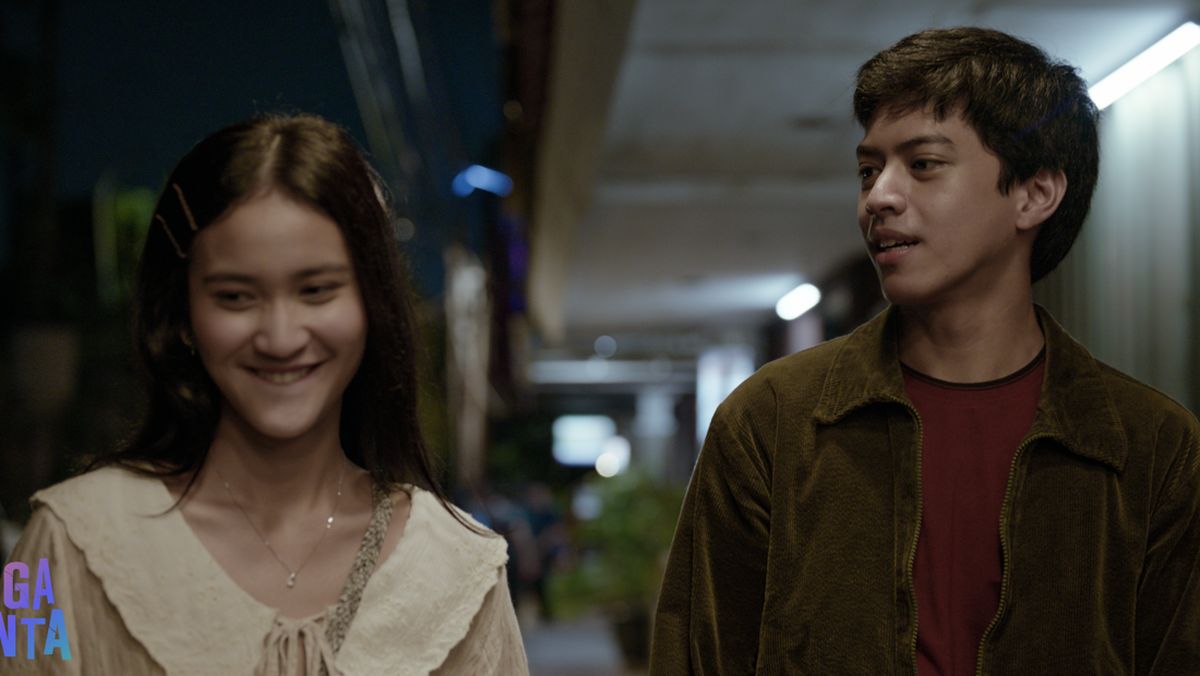From restaurants where you cook your own food to self-serve petrol stations and supermarkets, we’re doing a lot of the hard work ourselves these days. Now it’s theatre’s time to get in on the act. Some of the biggest titles at this year’s Melbourne Fringe do away with actors entirely, instead putting the audience in the driver’s seat.
Belgian company Ontroerend Goed is used to making participatory work. “We’ve done work where we put audience members in a wheelchair and blindfold them,” says director Alexander Devrient. “But this one is pushing the boundary of what theatre can be.”
He’s talking about Handle With Care, a show with no actors. The audience arrive to find a box of instructions on the stage. What happens next is up to them.

Handle With Care is one of the DIY theatre shows at this year’s Melbourne Fringe. Credit: Ans Brys
UK outfit SUBJECT OBJECT is also earning acclaim by subtracting actors from the equation. Its show work.txt (a play without actors) has punters arriving to an empty stage. “The central idea is that the audience are doing all of the work,” says writer-director Nathan Ellis. “Work invades all areas of our lives, including the theatre, where we’re supposed to just be having a nice time.”
Canada’s Mammalian Diving Reflex, which has two shows at this year’s Fringe – Nightwalks with Teenagers and Speed Dating with Cacti – has been making work that centres audiences for decades. “Back in the day, participation was sort of cringe,” says artistic director Daniel O’Donnell. “Now I think there’s confidence on the artist’s end, and then on the audience side there’s the desire to connect with each other.”
The people behind these thespian-free shows insist they don’t have a beef with trained actors. O’Donnell himself started out as one: “But I got tired of being bossed around by directors and writers. So I decided to be a director and a writer.”
Pretty soon he found that even breaking the fourth wall between actor and audience only achieves a shallow sense of connection, so he did away with walls completely. Mammalian’s breakout show, Haircuts by Children, put members of the public in the barber’s chair and handed over the scissors to a bunch of kids. The show, which was part of Melbourne Festival in 2016, has been touring for 20 years now.
Ontroerend Goed also makes theatre that puts the audience experience first because “the essence of theatre is that it matters that you are there,” says Devrient.
Handle With Care came out of a desire to connect with strangers in an analogue way. “I think that’s the biggest challenge humanity has. How do we care for people we don’t see?” His answer: show them respect and give them agency. Let them take care of the rest.
It’s there in the title: Handle With Care is a promise that “we will take care of you,” says Devrient. “And we trust you will take care of the show and of each other.”
One of Melbourne’s own Fringe offerings has much the same ethos. The Square is an open-air public space in which kids fire off questions ranging from “the political to the poetic to the poignant to the ridiculous”, says co-creator Alex Walker. Participants are invited to answer with their bodies, by moving to areas designated YES, NO and MAYBE.

Participants in The Square are invited to answer questions by moving to areas designated YES, NO and MAYBE.Credit: Darren Gill
The range of questions and the rapid-fire pace means participants won’t feel too exposed. You might move to YES when asked if you have a bad habit you need to change, but seconds later everyone will be scrambling about to indicate their appetite for spicy food or ability to do a cartwheel. “Within a short amount of time you’ve revealed so much, and there’s a bit of an adrenaline rush in being seen,” says Walker.
All of these works give audiences the opportunity to express themselves without any burden of expectation. “There was a time when if you asked for a volunteer in the audience, they could be made a fool of, or there was a degree of mockery involved. Now there is such care and wellbeing in art spaces, that … has … transformed how willing people are to have incredibly profound and poignant experiences through participation,” says Walker.
Devrient notes that handing an audience the reins isn’t the same as making them actors. “Almost all people are kind, but they’re not good actors. Don’t make people rehearse. Don’t make them feel like they have to perform.”

SUBJECT OBJECT’s work.txt puts the audience in charge. Credit: Alex Brenner
Ellis says SUBJECT OBJECT’s work.txt was informed by his fascination with performance that is unrehearsed and unexpected. The same goes for the company’s other show at this year’s Fringe: in each performance of Instructions, a different local personality will perform the work sight-unseen.
Loading
“The actors have never done this before,” he says. “The audience has never done this before. All of those things allow for a certain kind of pleasure to emerge that I don’t know how I would describe.”
Despite their challenging premises, all of these works have been received with open hearts and minds. “Theatre imagines itself to have all of these rules that it’s constantly deconstructing. But most people are coming from their real lives, which are full of these moments of spontaneity and strangeness,” says Ellis.
Walker points to our mobile phone addiction to explain why audiences ″are hungry for meaning and connection, and even if we don’t think we’re addicted to our phones, we are,” says Walker. “Even if we don’t think it’s wreaking havoc on our nervous systems, it is. Seeing each other and being in something shared in real time and space is nourishing.”
O’Donnell says works like these offer a welcome alternative to the kind of interactive performance art “where people are hurting themselves and doing rituals and being boring”. He prefers to make what one of his team calls “brilliant performance for regular-arse folks”.
That last bit is important, he says. “Often theatre and dance don’t satisfy regular-arse folk, people who aren’t interested in pretension or a certain kind of obfuscation.”
That’s why children feature prominently in the creation of several of these works. “They’re just not interested in pretentious bullshit. Their taste aligns with mine. They enjoy good work, but they don’t enjoy people who have their head up their own arses,” says O’Donnell.

Speed Dating with Cacti by Mammalian Diving Reflex is at this year’s Melbourne Fringe. Credit: Alice Qinn
Two Mammalian Diving Reflex works at this year’s Fringe will be led by young ’uns. Nightwalks with Teenagers is just what it sounds like, while Speed Dating with Cacti sees audiences guided around the Royal Botanic Gardens and encountering a series of people with very specific experiences of living in the moment: children, someone negotiating the early stages of Alzheimer’s, or with an acquired brain injury, for example.
“One of the first things the audience has to wrap their heads around is that the experience is not out there. The stage for this show is you, your own sensations,” says O’Donnell.
Just don’t think any of these artists are shirking off. As Ellis notes: “It’s actually very labour-intensive doing this kind of thing. Getting it to look like nobody’s behind the scenes is a lot of hard work.”
Work.txt and Instructions are at Trades Hall, Oct 1-12; Handle with Care is at Trades Hall, Oct 15-19; Speed Dating with Cacti is at the Royal Botanic Gardens, Oct 18-26; Nightwalks with Teenagers is at Wyndham Cultural Centre, Oct 9-11;The Square is at Fed Square, Oct 3-4; Melbourne Fringe runs September 30 to October 19, https://www.melbournefringe.com.au/


















































